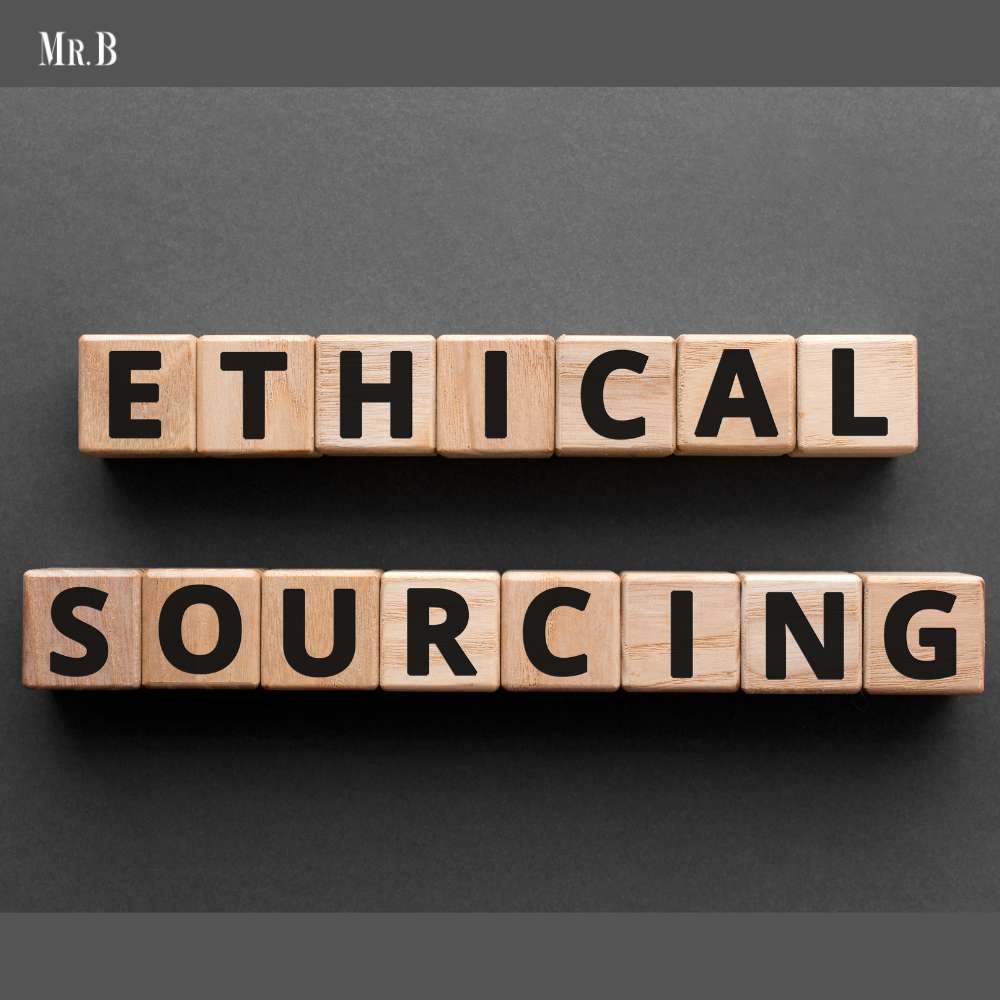What is the Role of Ethical Sourcing in the Supply Chain of an Organization?
- Category: Manufacturing

Nowadays, organizations have started taking note of ethical sourcing. Since everything is going green or electric, individuals and organizations have become more than aware of the environment. Ethical sourcing is an approach that an organization adopts actively and consciously makes continuous efforts to procure and distribute the goods without harming the environment, especially when in transit. It is a practice wherein businesses follow the norm of not leaving a negative impact on people and the environment.
Understanding the role of ethical sourcing:
Ethical sourcing is a comprehensive approach that involves procuring goods and services in a socially responsible and sustainable manner. Its role in the supply chain of an organization extends beyond a mere checkbox for corporate social responsibility (CSR) and delves into the core of operational strategies.
1. Ensuring fair labor practices:
It places a strong emphasis on fair labor practices. Organizations commit to sourcing from suppliers that provide safe working conditions, fair wages, and humane treatment of workers. This commitment mitigates the risk of exploiting labor and promotes a more equitable global economy.
2. Logical environmental practices:
This involves environmentally sustainable practices. Organizations strive to minimize their ecological footprint by sourcing materials and products in ways that reduce environmental impact. This includes considerations for responsible resource management, waste reduction, and eco-friendly manufacturing processes.
3. Community engagement:
Beyond the immediate supply chain, ethical sourcing encourages organizations to engage with local communities positively. This involves supporting local businesses, contributing to community development initiatives, and respecting the cultural and social contexts in which suppliers operate.
4. Tempering human rights risks:
Ethical sourcing mitigates human rights risks within the supply chain. Organizations are diligent in vetting suppliers to ensure that they do not engage in practices that infringe upon human rights, such as child labor or discriminatory employment practices.

Essential Strategies:
To implement it effectively, organizations should adopt a set of strategies that align with their values and business goals:
1. Supplier audits and assessments:
Conduct regular audits and assessments of suppliers to ensure compliance with its standards. This includes evaluating labor practices, environmental impact, and adherence to ethical business conduct.
2. Clear supply chain visibility:
Foster transparency in the supply chain by providing visibility into sourcing practices. This transparency not only builds trust with consumers but also allows for accountability across the supply chain.
3. Collaboration and partnerships:
Forge collaborative relationships with suppliers based on shared values. Establish long-term partnerships that prioritize ethical considerations, fostering a collective commitment to responsible sourcing.
4. Certifications and standards:
Seek certifications and adhere to industry standards related to ethical sourcing. Certifications such as Fair Trade, Rainforest Alliance, or ISO 14001 for environmental management validate an organization’s commitment to ethical practices.
5. Constant improvement:
Embrace a culture of continuous improvement in ethical sourcing. Regularly reassess and update sourcing practices based on evolving standards, industry trends, and feedback from stakeholders.

Formulating an ethical sourcing policy:
Creating a robust policy is crucial for guiding organizational behavior and setting clear expectations. Key points to include in an ethical sourcing policy:
1. Mission and values:
Clearly articulate the organization’s mission and values related to ethical sourcing. This sets the foundation for all sourcing activities to align with the broader goals of responsible and sustainable business practices.
2. Compliance and legal standards:
Outline the organization’s commitment to complying with international and local laws related to it. This includes labor laws, environmental regulations, and human rights standards.
3. Supplier code of conduct:
Develop a comprehensive supplier code of conduct that explicitly communicates the ethical standards expected from suppliers. This document should cover labor practices, environmental considerations, and adherence to ethical business conduct.
4. Transparency and reporting:
Clearly state the organization’s commitment to transparency in reporting. Establish mechanisms for regular reporting on ethical sourcing practices, allowing stakeholders to assess the organization’s progress and commitments.
5. Risk mitigation strategies:
Address potential risks associated with ethical sourcing and articulate strategies for mitigating these risks. This may include contingency plans for supplier non-compliance and a clear escalation process for addressing issues as they arise.

Boosting organizational image through ethical sourcing:
The benefits of ethical sourcing extend beyond the supply chain, significantly impacting an organization’s image:
1. Consumer belief and loyalty:
Consumers increasingly prioritize ethical considerations when making purchasing decisions. Organizations that embrace it build trust and loyalty, creating a positive association between the brand and responsible business practices.
2. Competitive advantage:
Ethical sourcing provides a distinct competitive advantage. In a market where consumers are becoming more conscientious, organizations that prioritize ethical practices stand out from competitors, attracting a growing segment of socially aware consumers.
3. Positive public relations:
It contributes to positive public relations. Organizations that actively communicate their commitment to ethical practices generate favorable media coverage, enhancing their overall reputation in the eyes of the public.
4. Employee morale and recruitment:
Employees increasingly seek employers with a strong commitment to ethical and sustainable practices. Organizations that prioritize it not only boost employee morale but also attract top talent who align with the company’s values.
5. Investor confidence:
It enhances investor confidence. Investors are more likely to support organizations that demonstrate a commitment to ethical and sustainable business practices, recognizing the long-term stability and resilience of such companies.
Conclusion:
Ethical sourcing is not just a buzzword; it’s a fundamental shift in the way organizations approach their supply chains. By embedding these practices into their operations, organizations can create a positive impact on the world while simultaneously reaping the benefits of enhanced brand image, consumer trust, and long-term sustainability. It is not just a choice; it’s a strategic imperative that aligns businesses with the evolving expectations of a socially conscious global community. As consumers increasingly demand transparency, sustainability, and ethical practices, organizations must recognize that ethical sourcing is not just a choice; it’s a reflection of their commitment to responsible business conduct.







